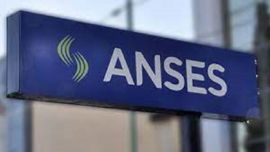Iran has vowed to expand its cooperation with International Atomic Energy Agency (IAEA) inspectors weeks after being rebuked by the body for failing to provide access to two sites suspected of hosting past nuclear activity.
Ali Akbar Salehi, head of the Atomic Energy Organisation of Iran, said talks with visiting IAEA Director General Rafael Mariano Grossi were “very constructive” and the start of a “new era,” state-run Islamic Republic News Agency reported.
Grossi, an Argentine official who’s on his first trip to Tehran since being appointed, tweeted that the IAEA and Iran were “working on reaching an agreement” on inspections.
“From time-to-time there may be questions that require verification, and this is why I’m here, among other things,” Grossi said during a press conference with Salehi. “So I will not subscribe to this idea that there has been any change, my presence here and our constructive relations exist and will continue.”
The United States seized on the June resolution admonishing Iran as further evidence of deception over its nuclear ambitions. European powers voted with the Americans but stood by their engagement with Tehran and opposition to the Trump administration’s “maximum pressure” strategy that’s reimposed US sanctions on the country.
Grossi is expecting to gain access to the two locations, which monitors think might have housed small-scale research some two decades ago. In 2018, Israel said it found documents that proved Iran had a secret programme to develop nuclear weapons. Iran has rejected the claims as “lies” and part of a matter that the agency had dealt with at the time. IAEA monitors said they independently corroborated sufficient information to warrant a visit.
At a separate press conference in Tehran, government spokesman Ali Rabiei said officials would address “false information and forged documents” presented by Israel in meetings with Grossi.
Iran’s nuclear programme has been subject to the most stringent inspections regime in the IAEA’s history. Under the terms of the 2015 multilateral nuclear deal, it scaled back its atomic activities in exchange for sanctions relief.
But after US President Donald Trump withdrew the United States from the accord in 2018 and reimposed tough sanctions, Tehran began flouting limits on its uranium enrichment.
Grossi arrived a day after Iran said that a July 2 blast at a compound near its largest enrichment facility in Natanz was a deliberate “act of sabotage.” Iran hasn’t said who it thinks targeted the site.
– TIMES/BLOOMBERG




















Comments